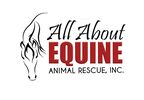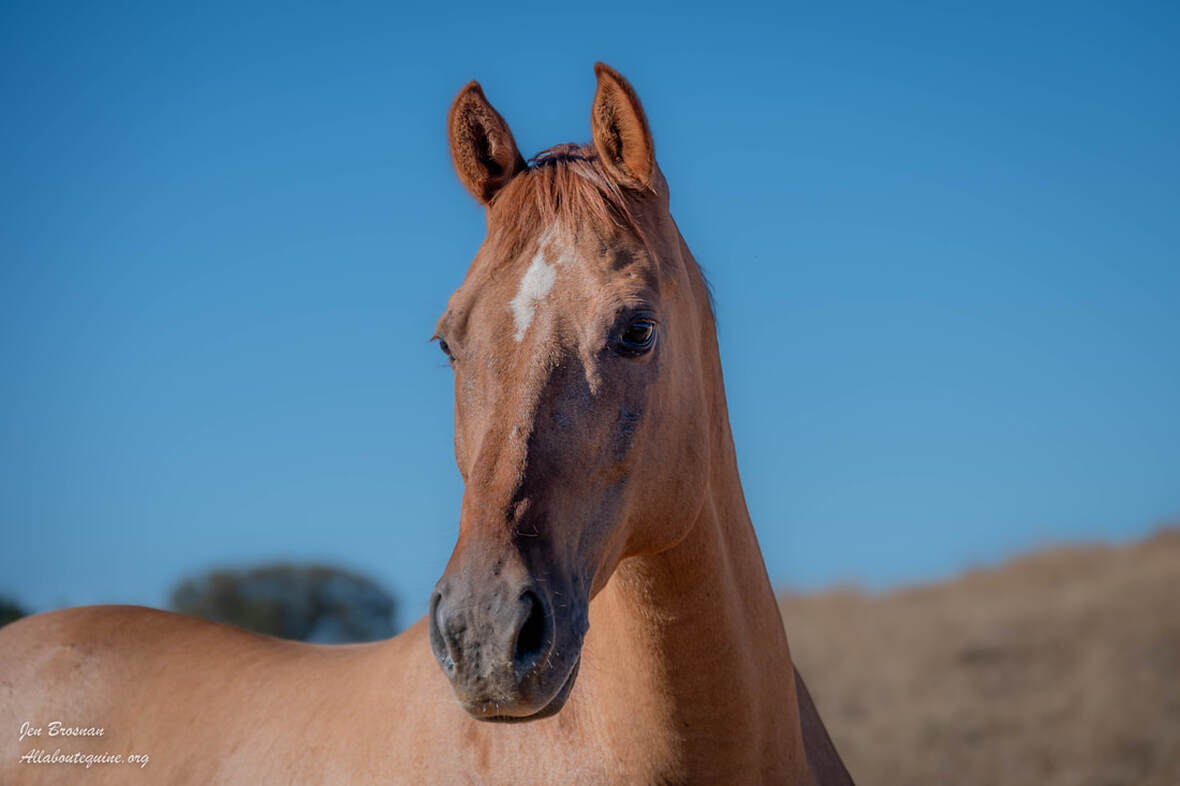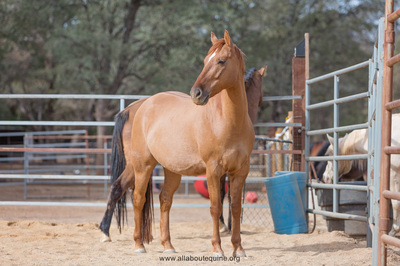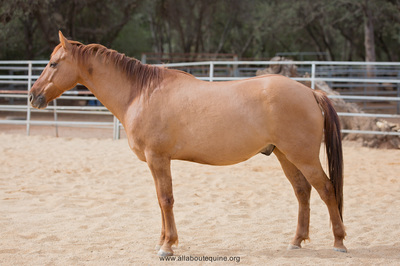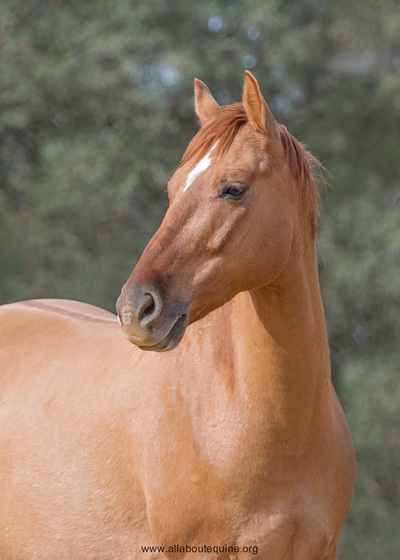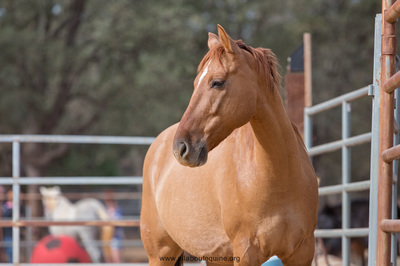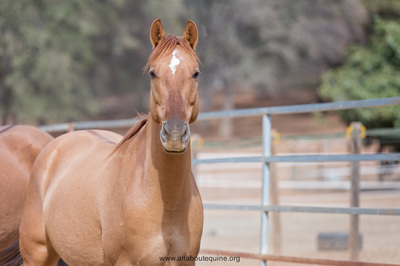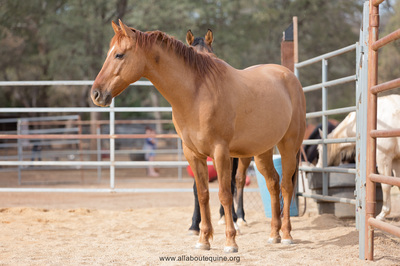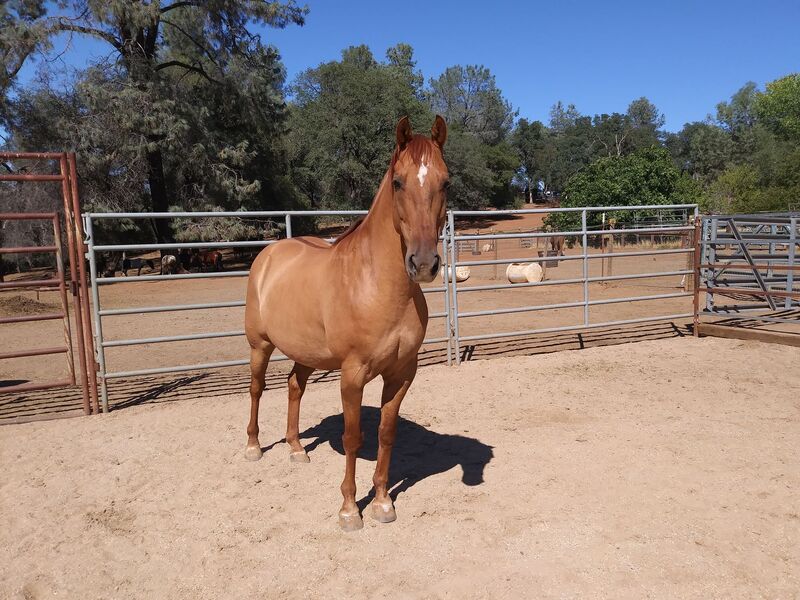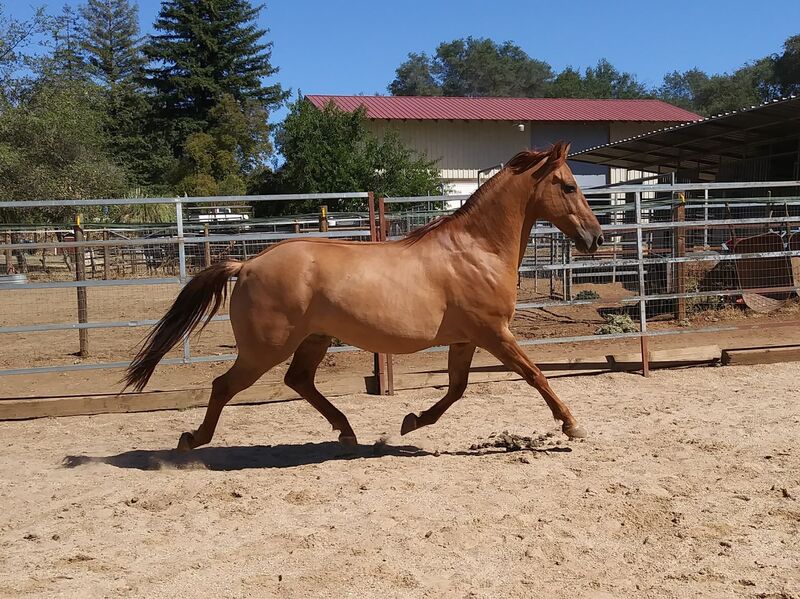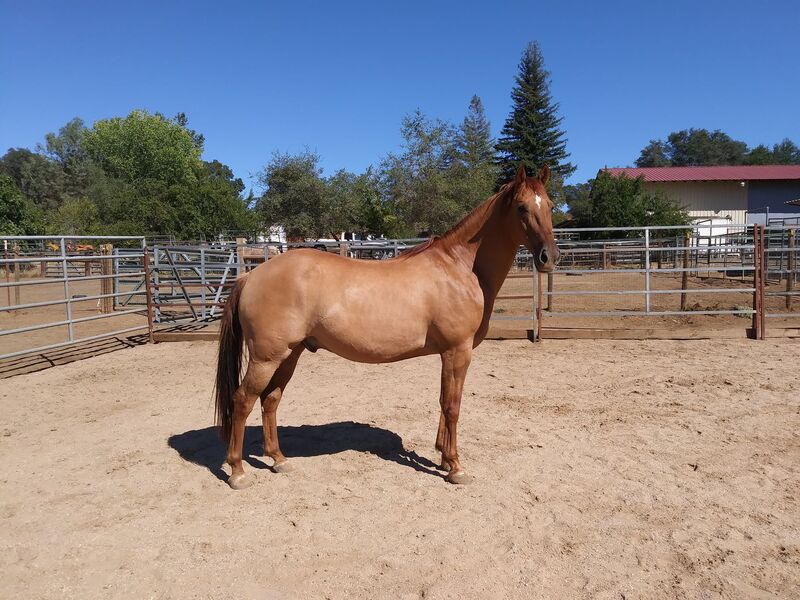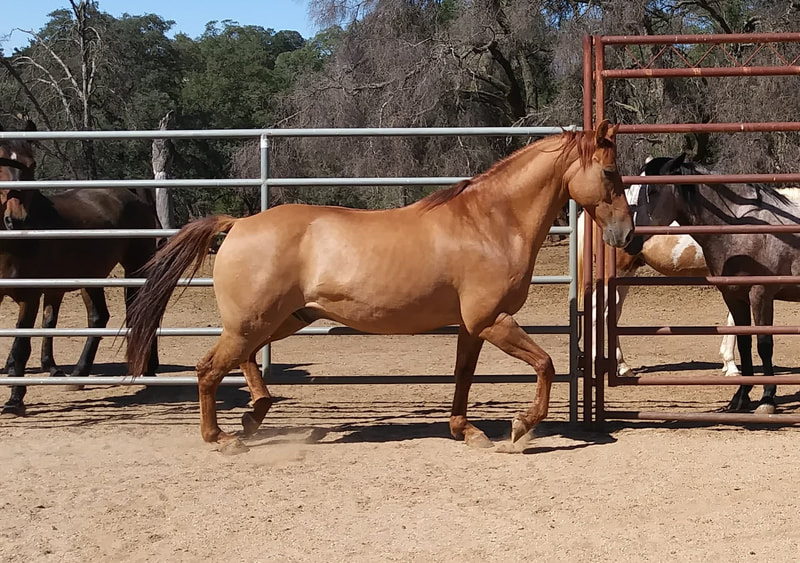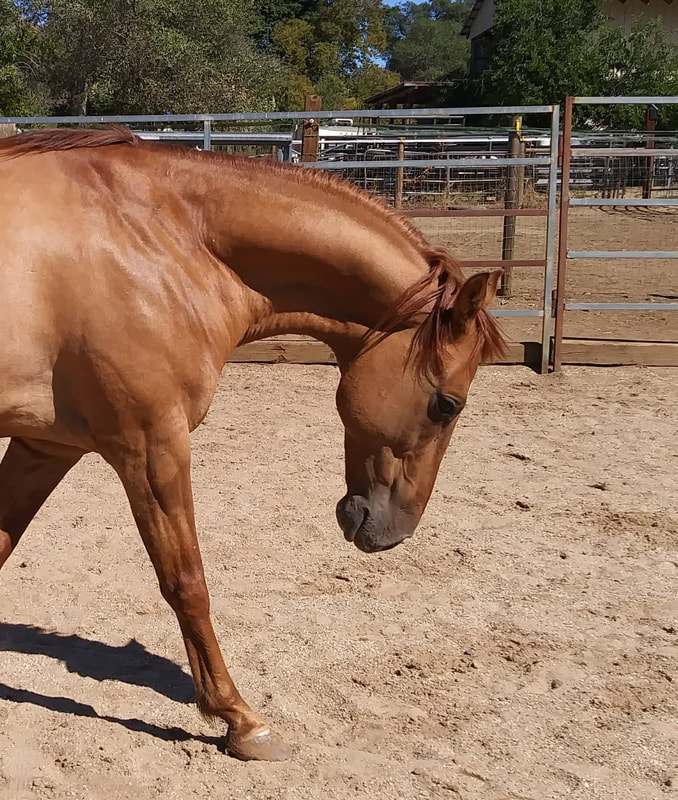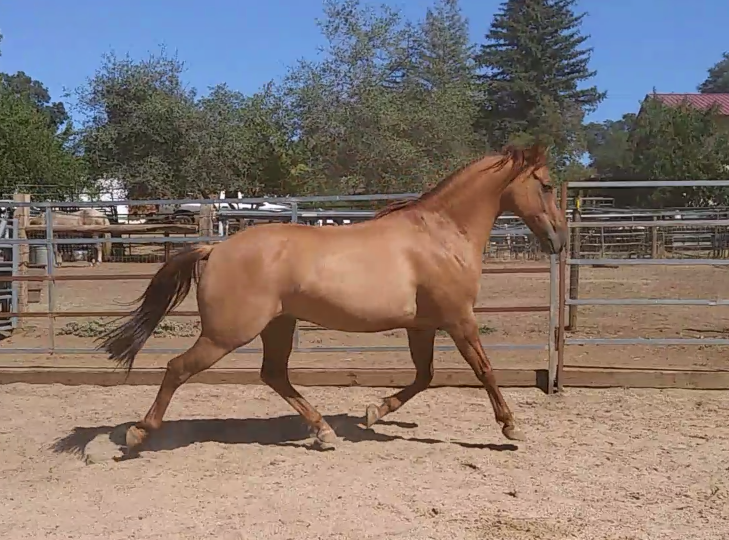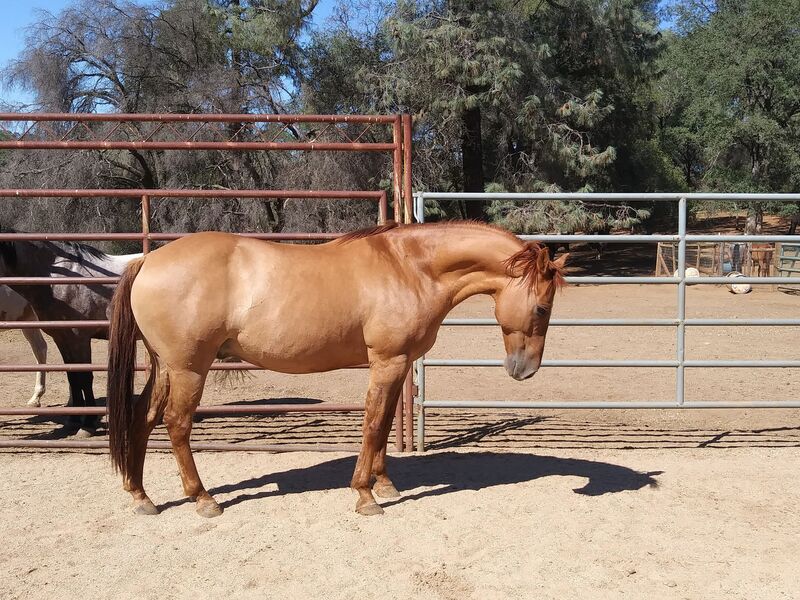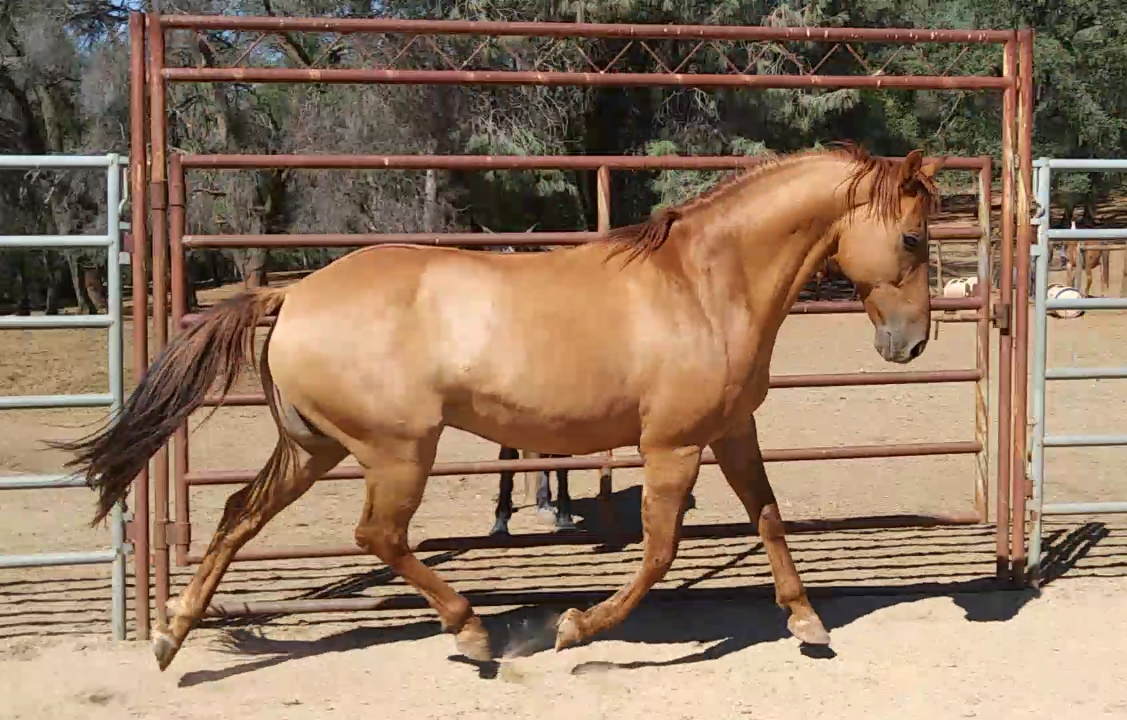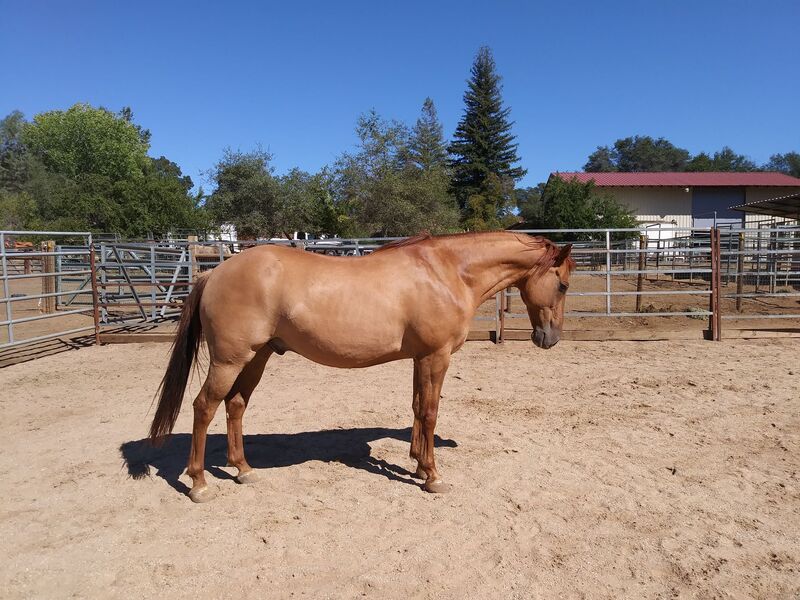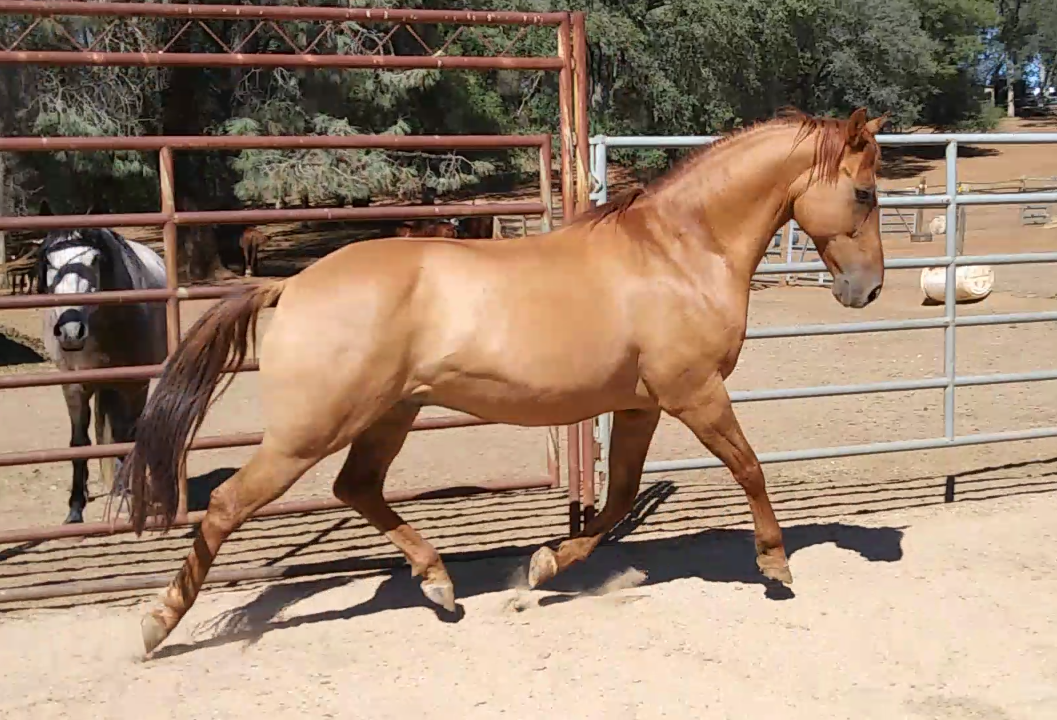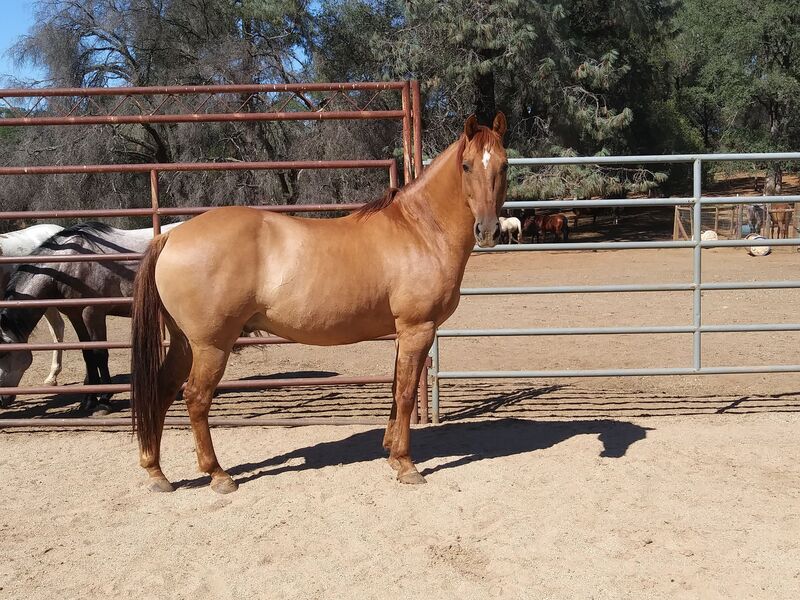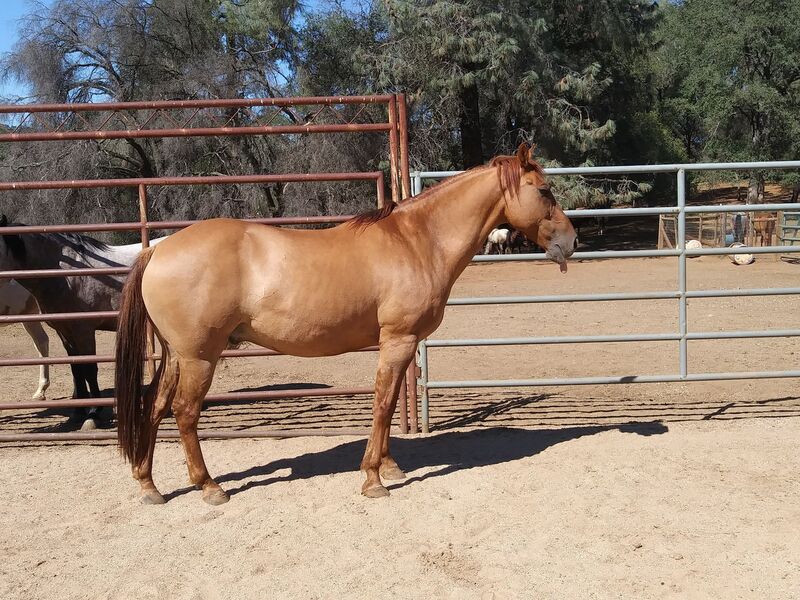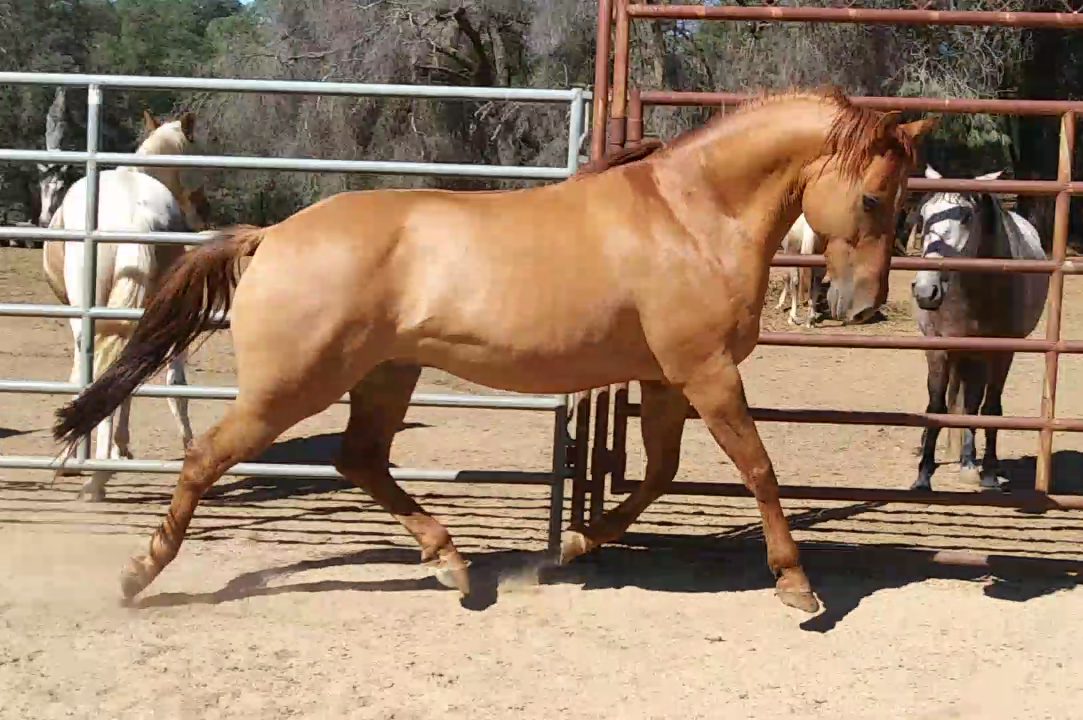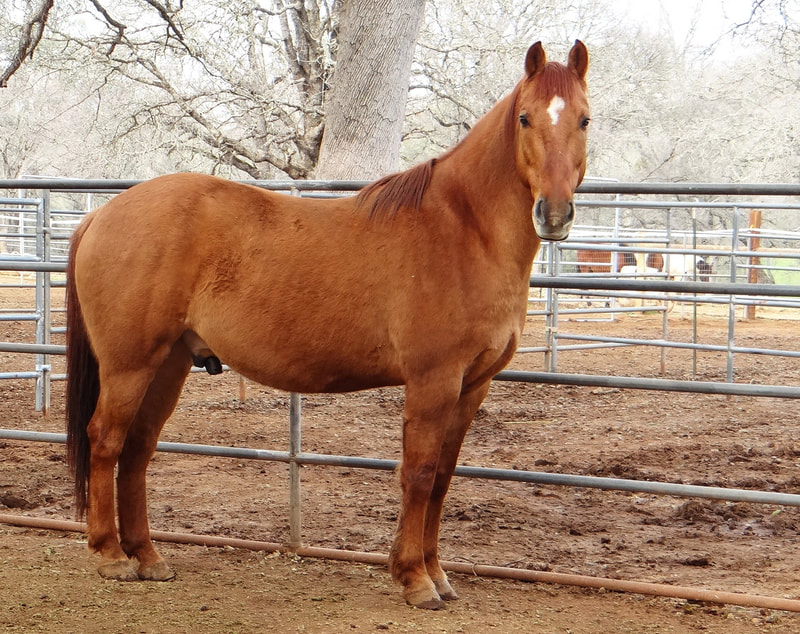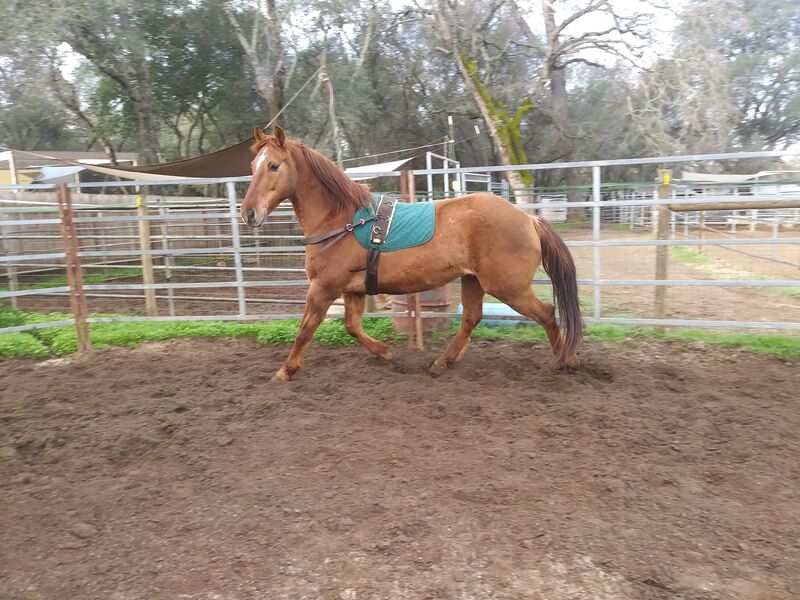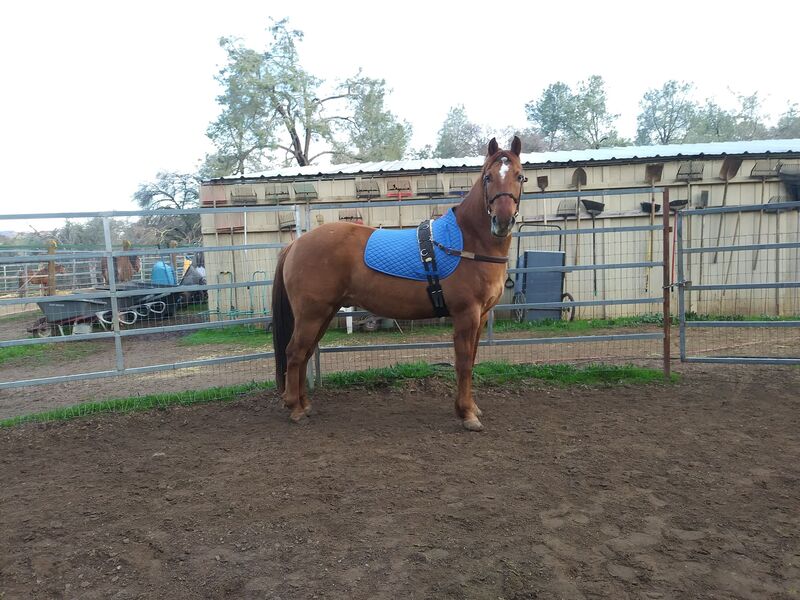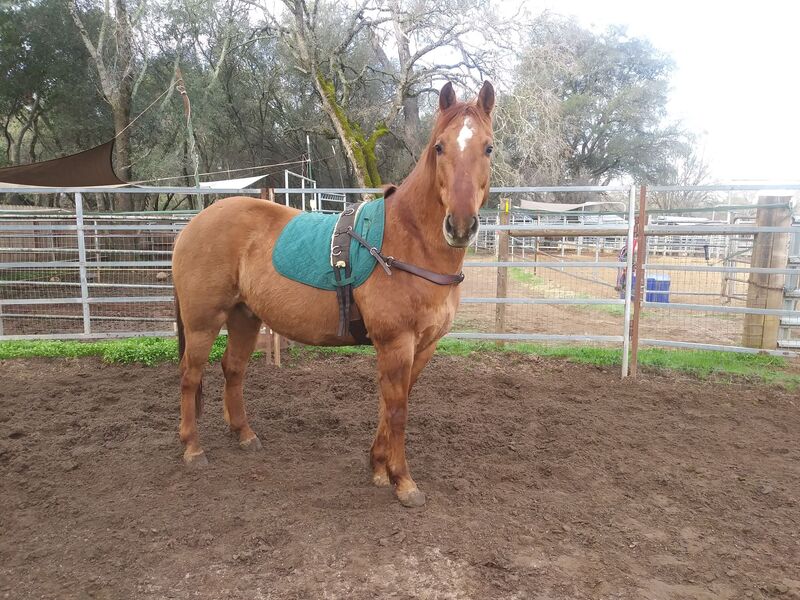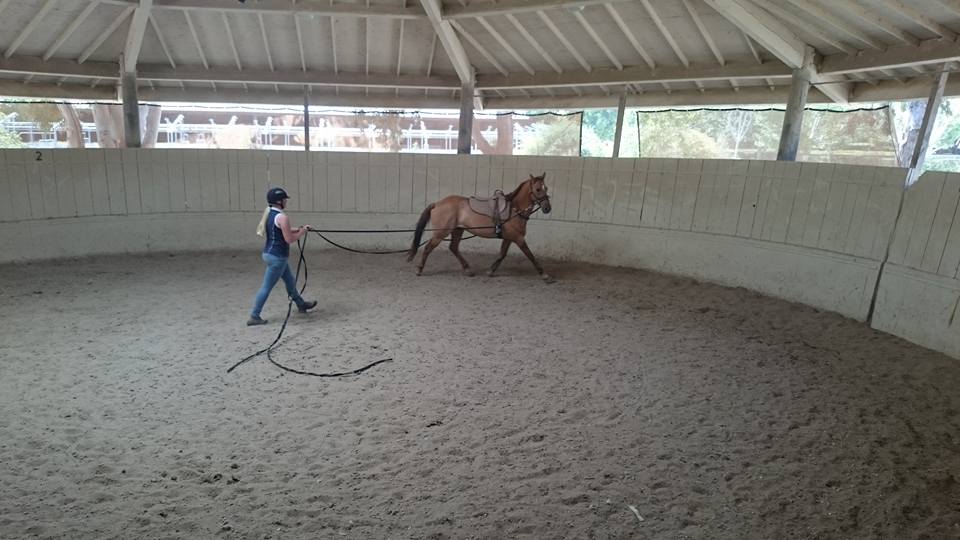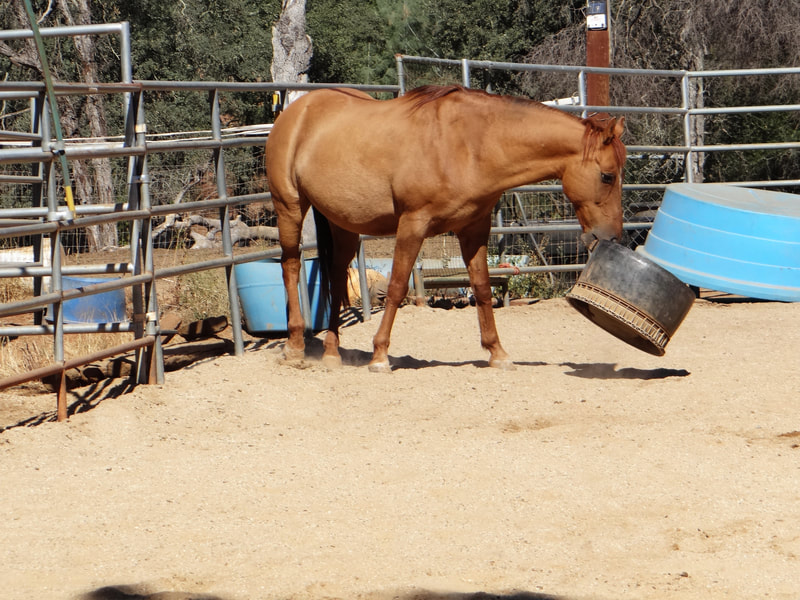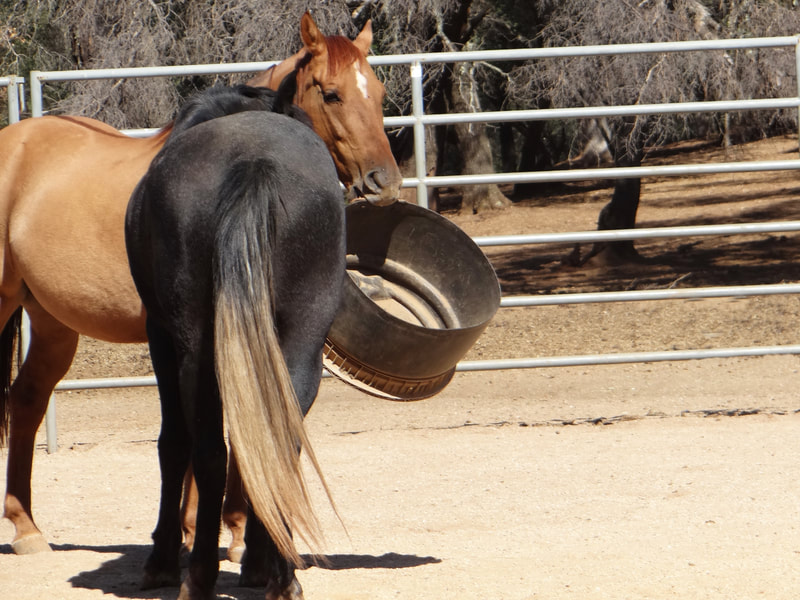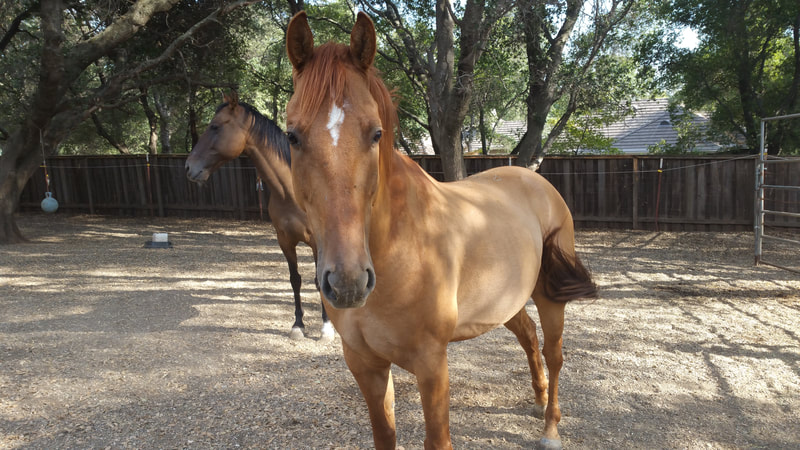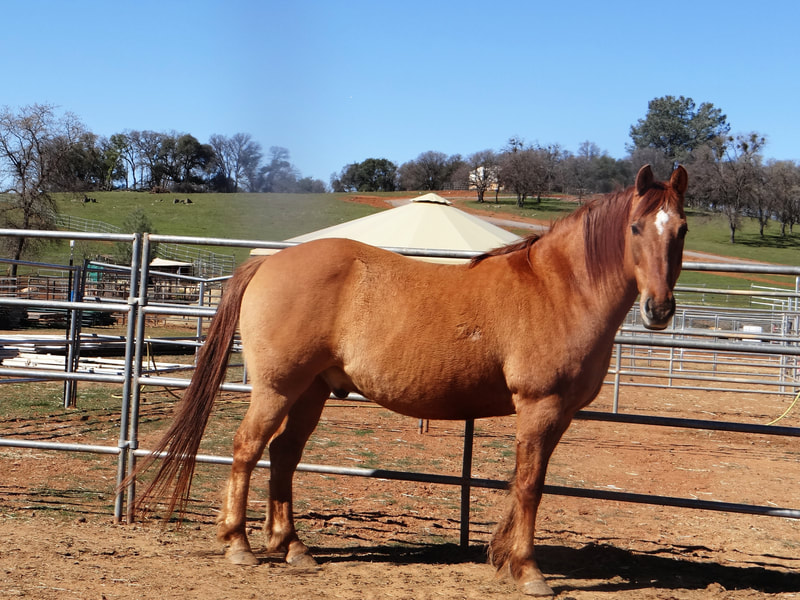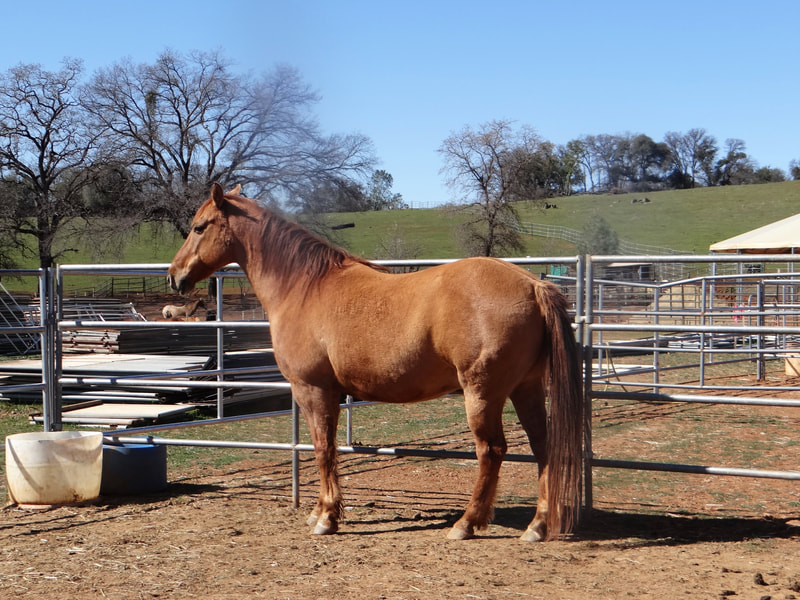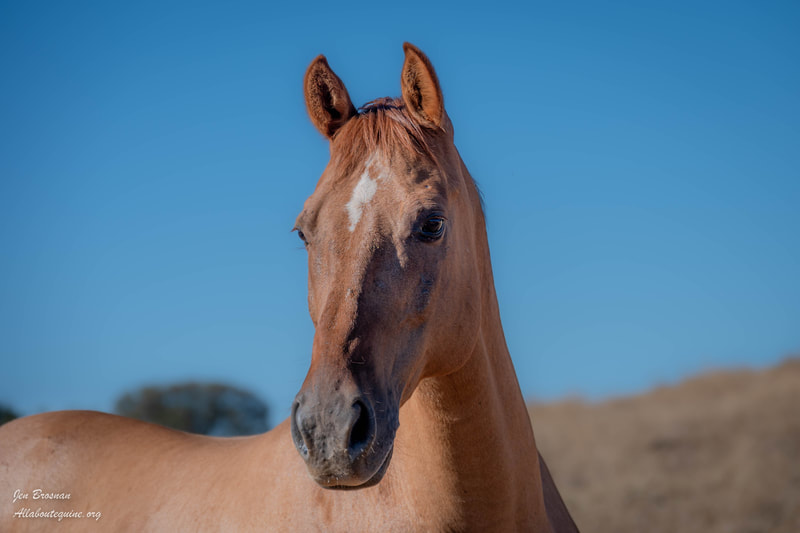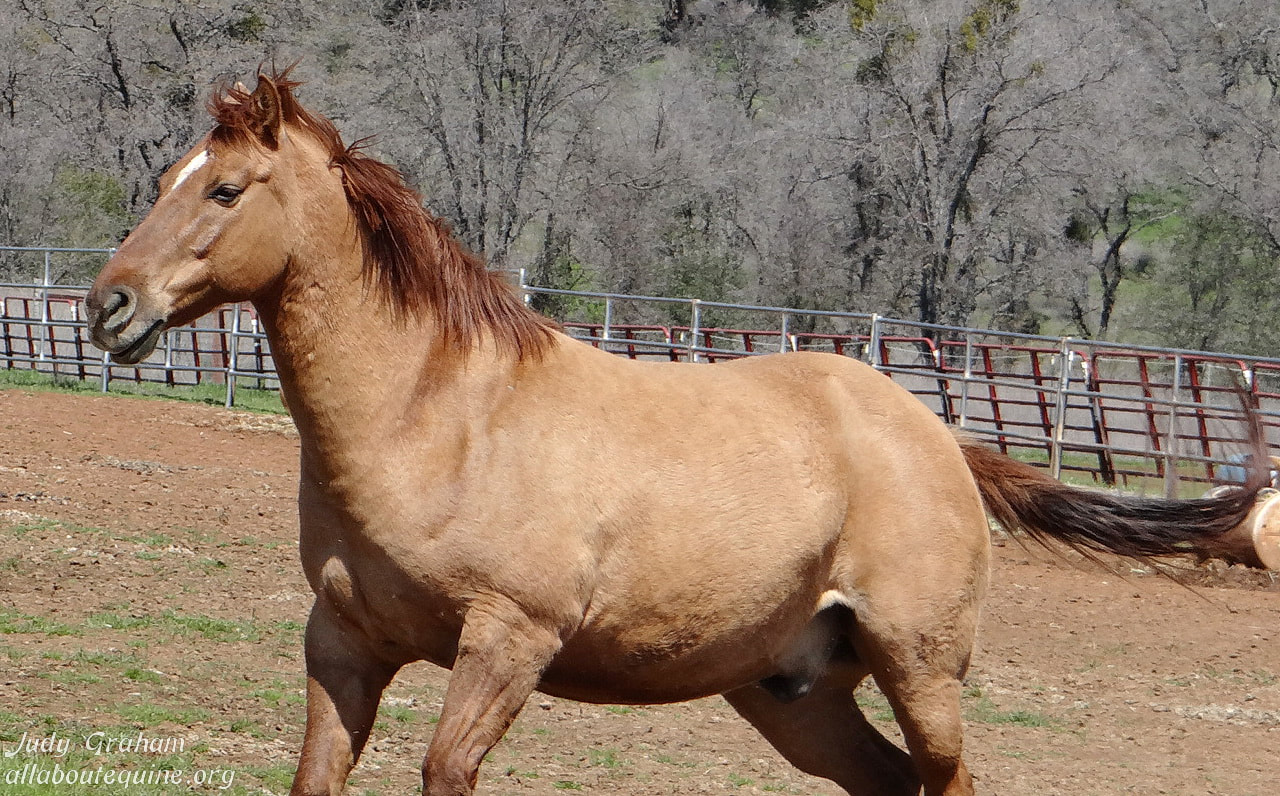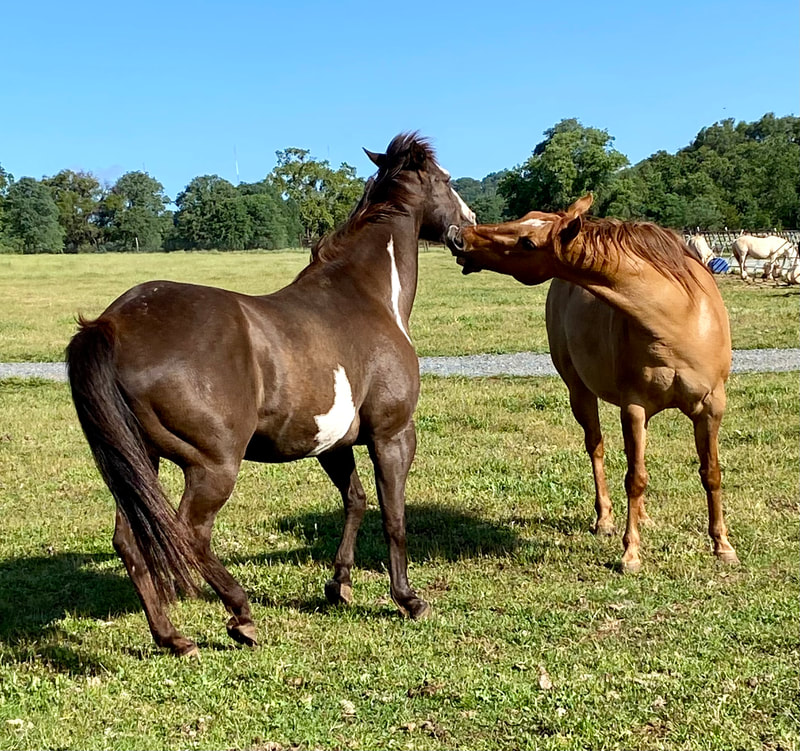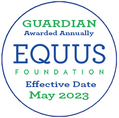Red
Height: 14.3 hh (est.)
Weight: 1,100 (est)
DOB: 2007 (est.)
Sex: Gelding
Color: Red Dun
Breed: Grade
DNA: 1st Holstein,
2nd Missouri Fox Trotter,
3rd Noriker
Adoption Fee: $750
Category: Project/Non-Riding
Weight: 1,100 (est)
DOB: 2007 (est.)
Sex: Gelding
Color: Red Dun
Breed: Grade
DNA: 1st Holstein,
2nd Missouri Fox Trotter,
3rd Noriker
Adoption Fee: $750
Category: Project/Non-Riding
Red's Story
Many of you may remember the incredibly handsome Red. Red originally came to AAE way back in the summer of 2015. He came from another rescue after spending several months at the Monty Roberts International Learning Center (MRILC) where he participated as a project horse during MRILC courses. He was completely untouchable when he arrived, and it took tremendous time for him to overcome fear and accept a simple touch by a human. Red has some deep-seated mistrust of humans, and he really didn't want to be in a world with humans. With an immense amount of work, he tried hard to understand. He learned basic groundwork and long-lining, and he was introduced to a saddle (no rider). Red came to AAE when the owner of the rescue he was with passed away.
After arriving at AAE, Red received hoof and dental care, deworming, and vaccines. He spent several months with a foster interested deep back country riding, where he learned more extensive groundwork, and he was exposed to a variety of objects and activities, but his foster felt Red never developed enough confidence to become the horse he needed. Red came back to AAE. Several months later, in the fall of 2016, Red was adopted by a young man. Red continued building trust and learning about saddle work, even carrying his young rider a few times. However, due to the realities of work and finances that come with adulthood, his young adopter was unable to continue to meet Red's needs. Sadly, Red later sat in his pasture with other horses and no significant human attention for many months before we were called to pick him up in January 2018.
Red had regressed, and much of the progress he'd made was gone. None of Red's vet care had been maintained, so all was updated again including dental and hoof care, vaccines, and deworming, and he got a microchip, too. Back at AAE for only about a month, Red suffered a traumatic pasture accident rupturing his peroneus teritius tendon. This usually happens when the hock is hyperextended, likely in a quick turn or change of direction. Thankfully, it was a soft tissue injury, and not the ghastly fracture it appeared to be. Red was on stall rest for more than a year and appears to have heal well. Research shows a good percentage of horses recover to the same level of exercise, and he appears to be back to his normal!
Fast forward to 2020, after many months of daily interaction, Red was again making slow, but great progress, building confidence, and really seeming like he was beginning to enjoy humans. Red was again adopted in November 2020. This time, his human was interested only in liberty work and a horse she could bring along to whatever he wanted to be. By the end of 2021, we learned Red was let down again. His person wanted more than Red could give, and she couldn't understand him enough to continue to build his confidence. He lived at a boarding facility in his own paddock, though he was surrounded by horses, he had no horse contact, no horseplay.
Red came back to AAE a third time in January 2022. Again, his health care had not been maintained, and he came back with some new learned behavior including rearing and pulling back to breakaway from pressure. He'd spin, turn, and bolt. His confidence was shattered, and his willingness to try diminished. Red had been failed again. Since back at AAE, his health care was updated again including hoof and dental care, vaccines, and deworming. Red has spent many months in pasture being a horse. He's reconnecting with other horses, and we're finally starting to see the Red we knew a few years ago. He comes in regularly for hoof care, and his confidence with humans is creeping forward again.
Red is one of those horses you really wish you could know what happened to him to understand his deep mistrust of humans. He has such a kind soul and an enormous heart. He tries so very hard to be brave and vulnerable, but he just can't. First contact with him is like 50 first dates...or 1,593,625 first dates by now. Once he's been touched, he is relatively easy to halter, but it still takes a slow approach and ongoing assurance. Once he's haltered, he also seems to appreciate grooming and just plain quiet time. Red does best with a very calm, confident, and patient person, someone experienced with trust-building in feral/wild horses. He is slowly moving forward, and we'll continue his journey. For future adoption, the best home for him with be with a person that wants the best for him, his person will have no agenda for riding or anything but forging a strong relationship, keeping Red health and happy, and becoming Red's best friend. Most likely, that will be a non-riding home with another horse or two with a person that wants to spend endless time with this guy allowing him to cross-over into the human world at his pace. Of course, there's always the possibility he never will, but with the right connection and bond, anything is possible.
Red would do best with a very experienced, and confident handler. He is sweet, smart, and honest; however he is reactive and perpetually snorty. He is always respectful of his handler's space. He does best when handled in a calm, matter of fact way. If he's in a large space, he's usually looking for and finds a way to escape pressure. That said, Red should also live at home with his person where he has continuity of care and handling every day, where he sees his person every day. He also needs another calm, easy-going horse or two to mentor him. If you're not this person with the right situation, please don't inquire. After three failed adoptions, we have failed to find Red the right home, though we sure thought we had. Now, he can stay in his herd at AAE as long as he needs and until he finds the perfect person with the perfect situation. This guy is so special, and he deserves nothing less.
Red is current with dental and hoof care, vaccines, and deworming, and he has a microchip.
In general, there is a lot of activity around AAE including foot traffic in and out of paddock/pasture areas, mucking with wheelbarrows, grooming and care activities, weekly farrier visits. There are resident dogs, cats, goats, a pig, cows, and mini horses, as well as various wildlife including frequent turkeys, squirrels, rabbits, deer, bobcats, and coyotes in and around pasture areas. AAE is situated on the corner of a busy road with high speed vehicles, trucks, and sirens. Tractors are used in and around pasture/paddock areas, trucks deliver feed, and a squeeze is occasionally used for unloading hay. Horses at AAE are accustomed to a more active environment as opposed to a quiet/sterile environment. Some do well, and others will do better in a more quiet environment.
After arriving at AAE, Red received hoof and dental care, deworming, and vaccines. He spent several months with a foster interested deep back country riding, where he learned more extensive groundwork, and he was exposed to a variety of objects and activities, but his foster felt Red never developed enough confidence to become the horse he needed. Red came back to AAE. Several months later, in the fall of 2016, Red was adopted by a young man. Red continued building trust and learning about saddle work, even carrying his young rider a few times. However, due to the realities of work and finances that come with adulthood, his young adopter was unable to continue to meet Red's needs. Sadly, Red later sat in his pasture with other horses and no significant human attention for many months before we were called to pick him up in January 2018.
Red had regressed, and much of the progress he'd made was gone. None of Red's vet care had been maintained, so all was updated again including dental and hoof care, vaccines, and deworming, and he got a microchip, too. Back at AAE for only about a month, Red suffered a traumatic pasture accident rupturing his peroneus teritius tendon. This usually happens when the hock is hyperextended, likely in a quick turn or change of direction. Thankfully, it was a soft tissue injury, and not the ghastly fracture it appeared to be. Red was on stall rest for more than a year and appears to have heal well. Research shows a good percentage of horses recover to the same level of exercise, and he appears to be back to his normal!
Fast forward to 2020, after many months of daily interaction, Red was again making slow, but great progress, building confidence, and really seeming like he was beginning to enjoy humans. Red was again adopted in November 2020. This time, his human was interested only in liberty work and a horse she could bring along to whatever he wanted to be. By the end of 2021, we learned Red was let down again. His person wanted more than Red could give, and she couldn't understand him enough to continue to build his confidence. He lived at a boarding facility in his own paddock, though he was surrounded by horses, he had no horse contact, no horseplay.
Red came back to AAE a third time in January 2022. Again, his health care had not been maintained, and he came back with some new learned behavior including rearing and pulling back to breakaway from pressure. He'd spin, turn, and bolt. His confidence was shattered, and his willingness to try diminished. Red had been failed again. Since back at AAE, his health care was updated again including hoof and dental care, vaccines, and deworming. Red has spent many months in pasture being a horse. He's reconnecting with other horses, and we're finally starting to see the Red we knew a few years ago. He comes in regularly for hoof care, and his confidence with humans is creeping forward again.
Red is one of those horses you really wish you could know what happened to him to understand his deep mistrust of humans. He has such a kind soul and an enormous heart. He tries so very hard to be brave and vulnerable, but he just can't. First contact with him is like 50 first dates...or 1,593,625 first dates by now. Once he's been touched, he is relatively easy to halter, but it still takes a slow approach and ongoing assurance. Once he's haltered, he also seems to appreciate grooming and just plain quiet time. Red does best with a very calm, confident, and patient person, someone experienced with trust-building in feral/wild horses. He is slowly moving forward, and we'll continue his journey. For future adoption, the best home for him with be with a person that wants the best for him, his person will have no agenda for riding or anything but forging a strong relationship, keeping Red health and happy, and becoming Red's best friend. Most likely, that will be a non-riding home with another horse or two with a person that wants to spend endless time with this guy allowing him to cross-over into the human world at his pace. Of course, there's always the possibility he never will, but with the right connection and bond, anything is possible.
Red would do best with a very experienced, and confident handler. He is sweet, smart, and honest; however he is reactive and perpetually snorty. He is always respectful of his handler's space. He does best when handled in a calm, matter of fact way. If he's in a large space, he's usually looking for and finds a way to escape pressure. That said, Red should also live at home with his person where he has continuity of care and handling every day, where he sees his person every day. He also needs another calm, easy-going horse or two to mentor him. If you're not this person with the right situation, please don't inquire. After three failed adoptions, we have failed to find Red the right home, though we sure thought we had. Now, he can stay in his herd at AAE as long as he needs and until he finds the perfect person with the perfect situation. This guy is so special, and he deserves nothing less.
Red is current with dental and hoof care, vaccines, and deworming, and he has a microchip.
In general, there is a lot of activity around AAE including foot traffic in and out of paddock/pasture areas, mucking with wheelbarrows, grooming and care activities, weekly farrier visits. There are resident dogs, cats, goats, a pig, cows, and mini horses, as well as various wildlife including frequent turkeys, squirrels, rabbits, deer, bobcats, and coyotes in and around pasture areas. AAE is situated on the corner of a busy road with high speed vehicles, trucks, and sirens. Tractors are used in and around pasture/paddock areas, trucks deliver feed, and a squeeze is occasionally used for unloading hay. Horses at AAE are accustomed to a more active environment as opposed to a quiet/sterile environment. Some do well, and others will do better in a more quiet environment.
